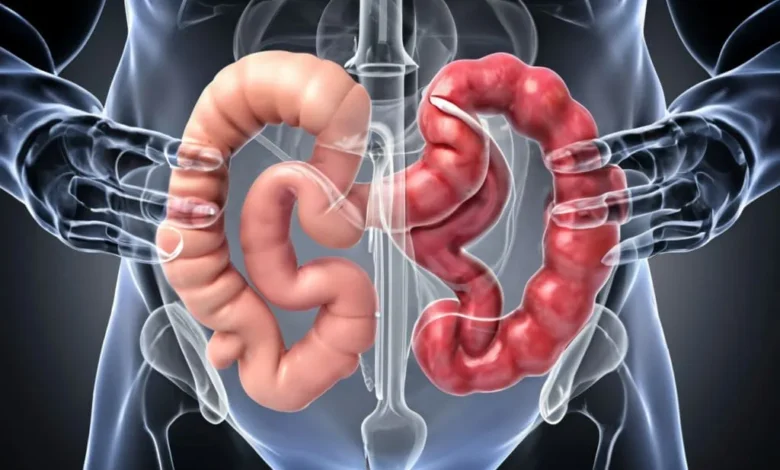When Would You Need a Proctologist vs Gastroenterologist?

In the realm of medical specialties, proctology and gastroenterology play crucial roles in addressing issues concerning the digestive system. While these fields share some common ground, they are distinct in their focus and expertise. Understanding when to seek the assistance of a proctologist versus a gastroenterologist is vital for proper diagnosis and treatment.
Understanding Proctology
Proctology is a branch of medicine dedicated to diagnosing and treating disorders of the rectum, anus, and colon. Proctologists, also known as colorectal surgeons, are trained to manage conditions such as hemorrhoids, anal fissures, rectal prolapse, and colorectal cancer. They employ various diagnostic techniques, including digital rectal examinations, colonoscopies, and sigmoidoscopies, to evaluate and treat patients.
The Role of a Proctologist
Proctologists perform a wide range of procedures, including hemorrhoidectomy, fistulotomy, and colon resection. They specialize in both surgical and nonsurgical interventions aimed at alleviating symptoms and improving the quality of life for individuals suffering from colorectal disorders. If you experience symptoms such as rectal bleeding, persistent anal pain, or changes in bowel habits, consulting a proctologist is advisable.
Understanding Gastroenterology
Gastroenterology focuses on the diagnosis and management of diseases affecting the digestive tract, including the esophagus, stomach, intestines, liver, and pancreas. Gastroenterologists are trained to address conditions such as acid reflux, inflammatory bowel disease (IBD), irritable bowel syndrome (IBS), liver cirrhosis, and pancreatic disorders. They utilize various diagnostic tools, including endoscopy procedures, colonoscopy, and imaging studies, to assess gastrointestinal health.
The Role of a Gastroenterologist
Gastroenterologists offer a comprehensive range of services at reputable clinics like Canadian Place Endoscopy clinic, including endoscopic procedures such as upper endoscopy and colonoscopy, aimed at visualizing and treating abnormalities within the digestive tract. They also specialize in managing chronic gastrointestinal conditions through medication management, dietary counseling, and lifestyle modifications. If you experience symptoms like chronic abdominal pain, persistent diarrhea, or jaundice, seeking evaluation from a gastroenterologist, particularly at esteemed facilities like Canadian Place Endoscopy clinic, is essential for accurate diagnosis and effective treatment.
Key Differences Between Proctologists and Gastroenterologists
While both proctologists and gastroenterologists specialize in treating digestive disorders, they differ in their areas of focus and expertise. Proctologists primarily concentrate on conditions affecting the rectum and anus, whereas gastroenterologists address a broader spectrum of gastrointestinal issues, including those pertaining to the stomach, intestines, liver, and pancreas. Additionally, proctologists often perform surgical interventions, whereas gastroenterologists primarily utilize medical and endoscopic therapies.
When to Consult a Proctologist
You should consider consulting a proctologist if you experience symptoms such as rectal bleeding, anal itching, painful bowel movements, or protruding hemorrhoids. These signs may indicate underlying rectal or anal conditions that require evaluation and treatment by a specialist. Additionally, if you have a family history of colorectal cancer or polyps, regular screenings and surveillance by a proctologist are recommended.
When to Consult a Gastroenterologist
If you encounter symptoms such as persistent abdominal pain, bloating, diarrhea, constipation, or difficulty swallowing, scheduling an appointment with a gastroenterologist is advisable. These symptoms may signify gastrointestinal disorders, such as IBD, IBS, gastroesophageal reflux disease (GERD), or peptic ulcers, which necessitate specialized evaluation and management. Gastroenterologists can perform diagnostic tests, such as endoscopy and imaging studies, to identify the underlying cause of your symptoms and formulate an appropriate treatment plan.
Collaborative Approach
In certain cases, individuals may require the expertise of both a proctologist and a gastroenterologist to address complex gastrointestinal issues comprehensively. Conditions such as inflammatory bowel disease, colorectal cancer, and complex anal fistulas may necessitate a multidisciplinary approach involving both surgical and medical interventions. Collaboration between these specialists ensures optimal patient care and treatment outcomes.
Importance of Timely Intervention
Prompt recognition and management of gastrointestinal symptoms are essential for preventing complications and improving overall health outcomes. Delaying or ignoring symptoms can lead to the progression of underlying diseases, resulting in more extensive interventions and poorer prognosis. Therefore, if you experience persistent digestive issues or alarming symptoms, seeking timely medical attention from a qualified specialist is imperative.
Conclusion
In summary, knowing when to consult a proctologist versus a gastroenterologist depends on the nature of your symptoms and the area of the digestive system affected. Proctologists specialize in disorders of the rectum and anus, while gastroenterologists address a broader range of gastrointestinal conditions. By understanding the roles and expertise of these specialists, individuals can make informed decisions regarding their healthcare needs and seek timely intervention when necessary.





